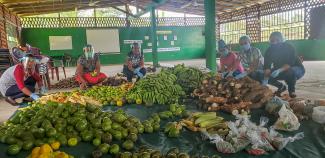
In the mountains of Talamanca in Costa Rica, a family has cassava and banana crops; another, corn and yams. A “weaver of knowledge,” a woman in charge of maintaining the database and accompanying the producer families in their community, collects this information and sends it via WhatsApp to the central team of the Kábata Könana Women’s Association. In the central office, these women establish a route for the exchange of products. The result: the families in the Indigenous territory have all the food they need, harvested according to ancient methods, on their own land.
This is how the Indigenous “Estanco” of Virtual Produce Exchange works, a solution that uses new technologies and ancestral farming practices to guarantee food security for the Bribri and Cabécar communities during the COVID-19 pandemic. In late June, two vehicle routes carried out the first exchange of products and seeds, in which 110 families from the Talamanca Cabécar territory participated. Sacks of cassava, yams, tiquisque, beans, rice, plantains, avocados, corn, chocolate, pinolillo, star fruit, mango, and ñampí entered and left the houses.
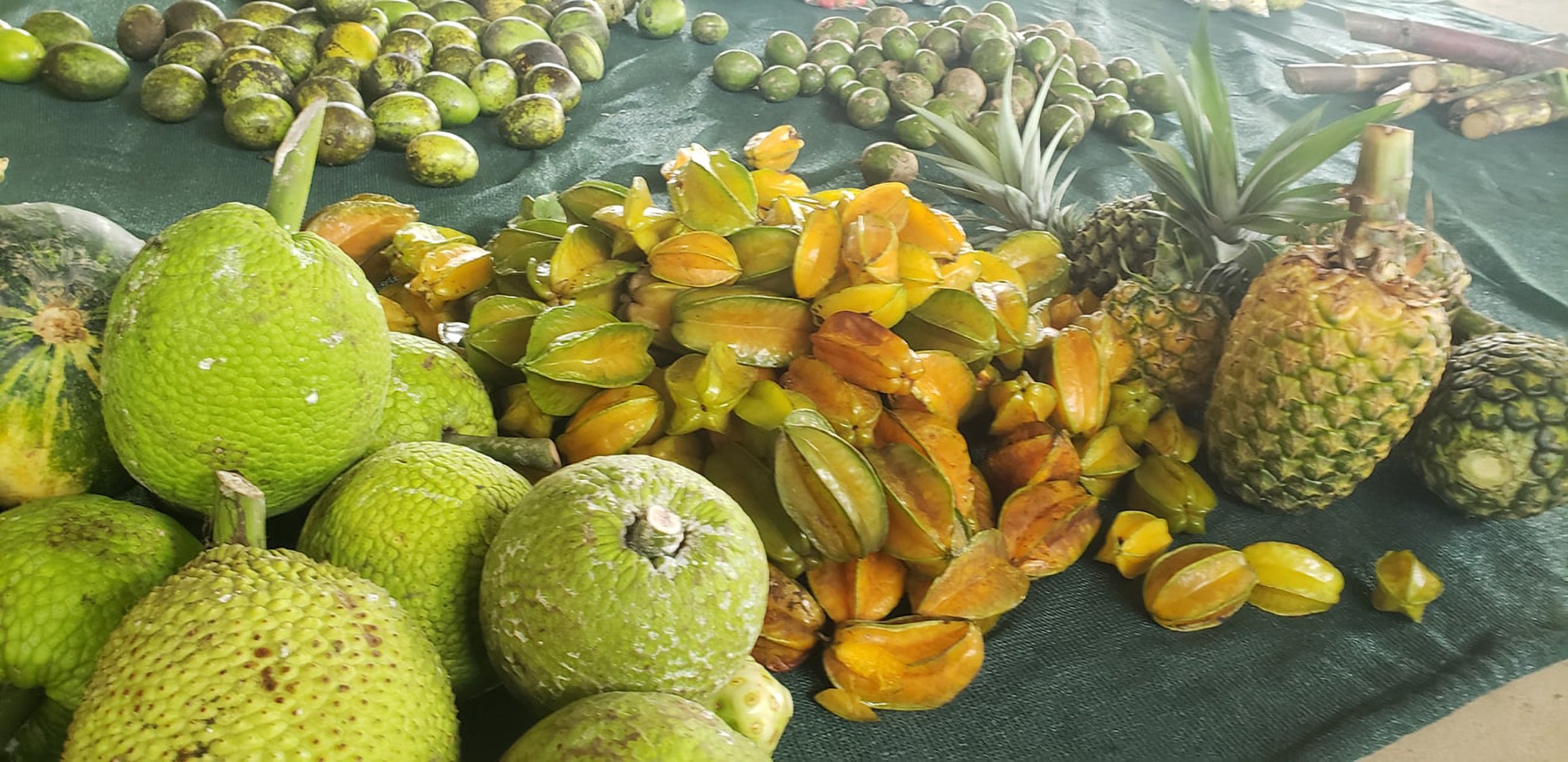
“When we saw that the pandemic was approaching our territory, we knew that we had to organize ourselves so that no family would be short of food. Indigenous people have always planted and exchanged food, and this has been a time to further strengthen these traditions,” says Maricela Fernández (Bribri), president of Kábata Könana. The initiative operates under the Indigenous cultural principles and values of ñakimá (solidarity), julákimá (exchange), klabé (collectivity), and käpakö (dialogue). This food exchange is part of the Indigenous Plan for Attention to Recovery from the Pandemic that the Bribri Cabécar Indigenous Network prepared to address the impact of COVID-19. The plan also includes rapid response and community containment; coordination committees with government institutions; an axis of cultural production; and an economic axis of post-pandemic recovery.
The cultural production is led by the women of Kábata Könana with the support of an Indigenous youth group. In addition to the Estanco, the team is creating a work guide for government institutions, a production inventory of families using Indigenous dialogue methodology (kápakö) combined with sé sërke, the cultural experience system; the implementation of their cultural production system and its five categories (witö, teitö, sä deli, sa chá, and chamukelö); and the startup of a Living Museum for the Protection of the Seed which, in the future, will become a tourist attraction and would give sustainability to the entire project.
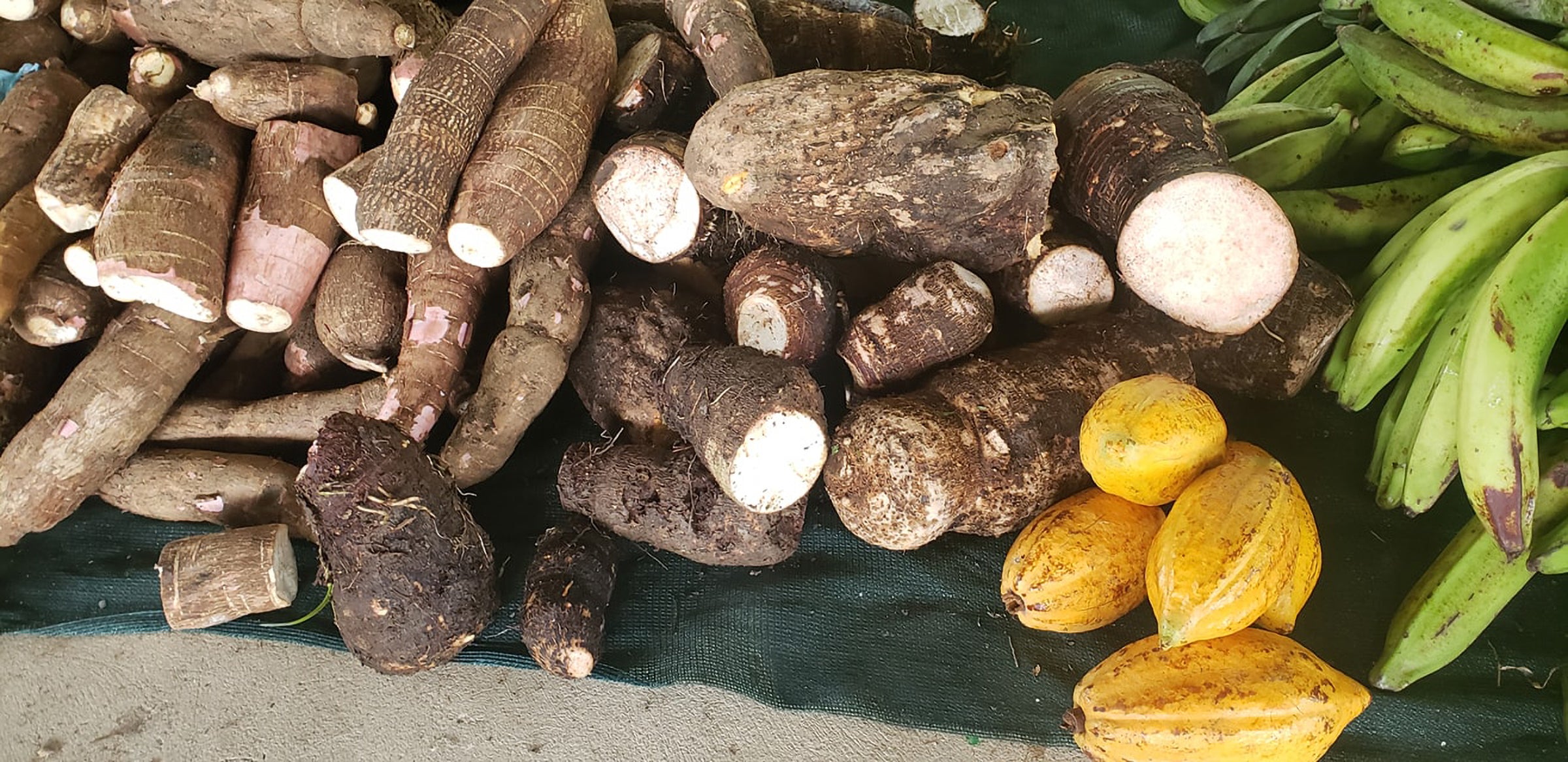
The Indigenous Estanco of Virtual Produce Exchange is a joint effort of the Kábata Könana Women’s Association and the Association for the Integral Development of the Talamanca Cabécar Indigenous Territory, in conjunction with the Bribri and Cabécar Indigenous Network. The project is developed in association with the Love for Life organization and the Mesoamerican Alliance of Peoples and Forests, and has the support of the German Agency for International Cooperation.
— Mesoamerican Alliance of Peoples and Forests is a platform of territorial authorities that administer or influence the main forest masses of Mesoamerica. Indigenous governments and community forest organizations in the Alliance seek to strengthen their own dialogue, focused on community management of their natural resources. They jointly seek to influence governments and international cooperation so that biodiversity conservation strategies appropriately integrate the rights and benefits of Indigenous Peoples and forest communities.
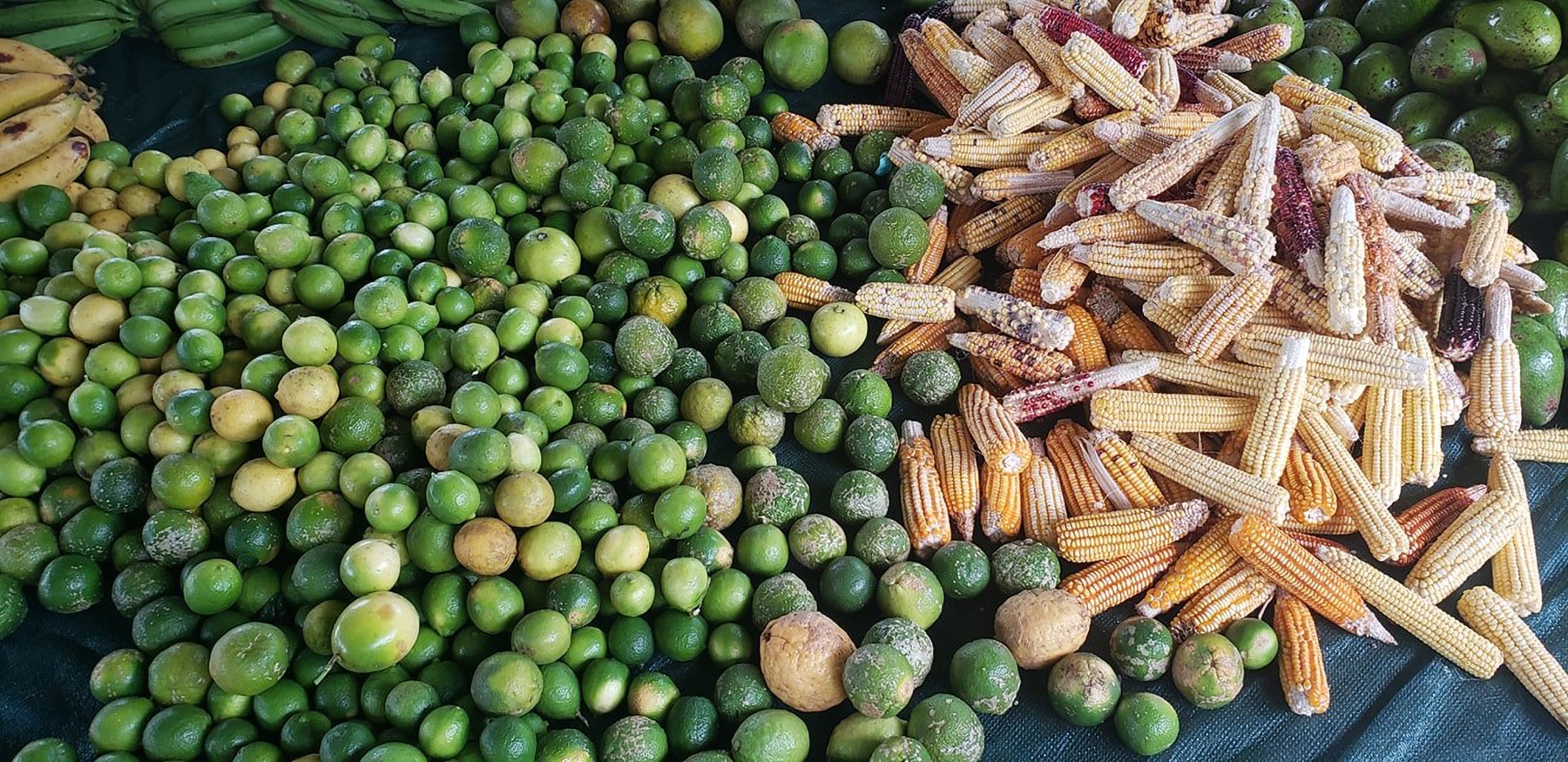
Interview with Maricela Fernández Fernández
I live in the Gavilán community in Talamanca Indigenous territory, Costa Rica. As an Indigenous territory and local government we closed the gate [when the COVID-19 pandemic started] so that outsiders do not enter and so there is control. We started organizing with other community organizations, the development association of our local government, women’s organizations, and young people. Thanks to the strict vigilance on the territorial border by our authorities, there are no positive cases of COVID-19 here.
We organized ourselves to create a production plan in the territory together with the local government and women’s association to be able to supply our families in terms of food security. That is how the Estanco Indígena was born. We are working with [the exchange] in solidarity with one another so nobody lacks food. We are supporting each other.
When buying products, the development association offers transportation. The bus takes a group of people to buy their products, then they disinfect themselves, the bus, and their masks before entering into their territory. People leave their territory once a week; they are not allowed to go out every day. This is a strategy implemented by other organizations, which is where the idea of implementing a virtual market through WhatsApp came from.
It is well known that during COVID we cannot gather in large groups of people. [So] we have a woman in each community, who we call a “weaver of knowledge.” She goes one by one to visit houses and gets information from families. She asks what they need, about what products they have in our ancestral traditional knowledge and what they are called, and what their functions and applications are. When the weaver of knowledge has cellphone reception in the community, she transmits this information to another colleague who receives the data in the office through WhatsApp. Then they send it to others, and information is shared.
In order to use WhatsApp we need credit, which means spending money. How do these expenses get covered, and how do you deal with people who do not have a signal for WhatsApp? We work in the most vulnerable communities where there is no electricity. By installing solar panels we provide training to a group of women on topics like gender equality. When we were not able to travel anymore due to this pandemic, we had to stay within our territories. We are currently working on solar panel trainings, communication, and transportation.
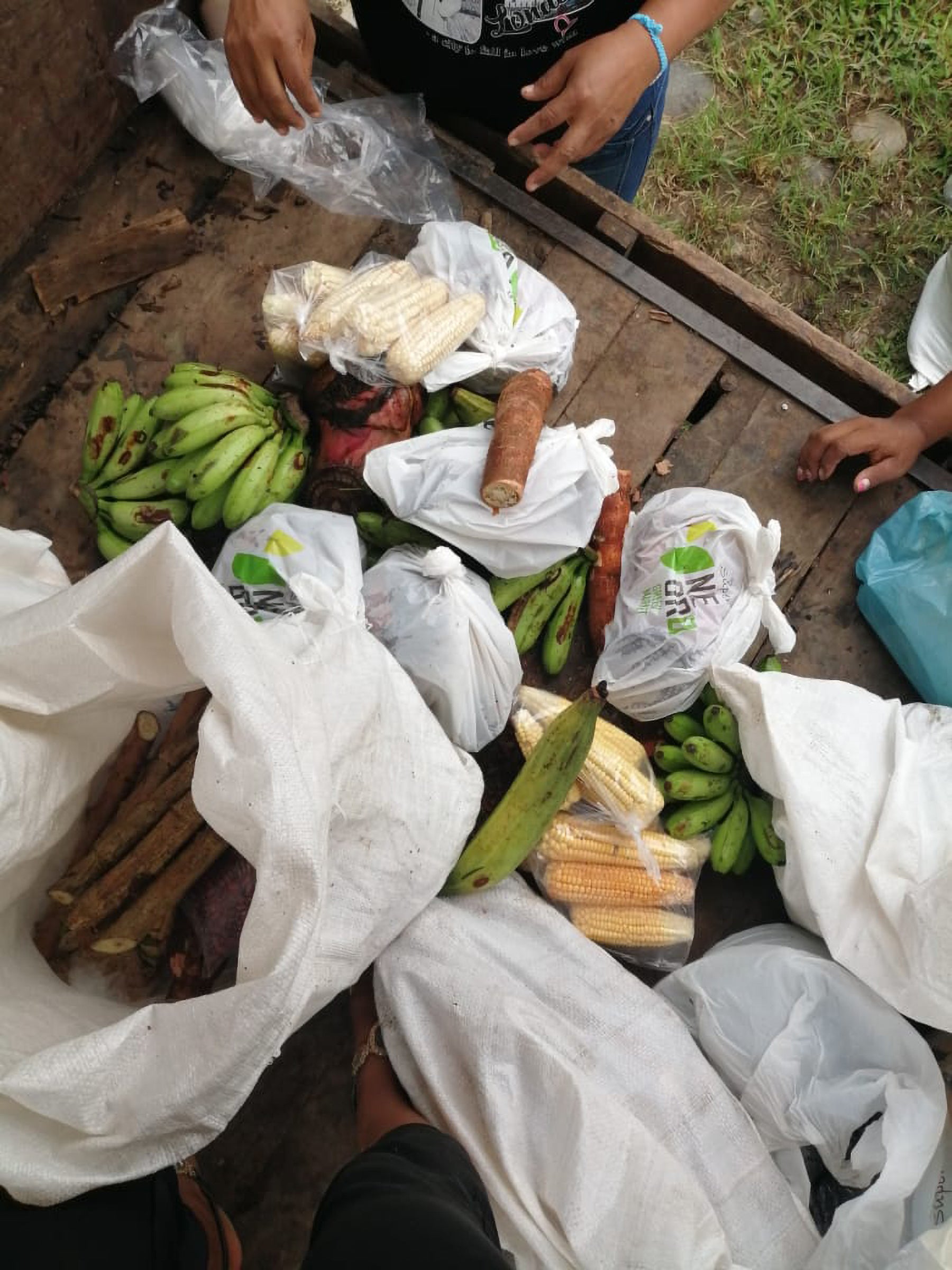
We have had some challenges in implementing the virtual market. We do not have enough resources and we have to find new ways to provide supplies to our weavers. There is no reception here and we have to go to another woman’s house in order to get information. Also, when we get products like fruit, vegetables, and seeds, we need resources, especially when we want to move that product to another community.
We have been working with two other women’s organizations; one of the organizations in the city stopped working due to the COVID. We have all seen good results for the Estanco—the food producers demonstrate that solidarity is the key to overcome all that’s happening. There is such a great effort put into being supportive from our own community, giving a hand when people need it the most and not only when we are selling them our products. We are also working on some ancestral practices, which is something that Indigenous people have been doing for years. This does not depend only on money, but through exchanging our products and being supportive.
People have seen photos of the work we do in the communities via WhatsApp. People want to meet with us and buy our products because they want to help us increase the economic income for the communities that produce healthy organic produce. I am sure this market will continue after the pandemic and we will be okay. I’m sure many producers will be able to sell their products. It is time to go back to our lands to produce and guarantee our food sovereignty for our families. Indigenous spirituality is fundamental to food production based on our traditional knowledge, so we can show the world a different way.
All photos by Kábata Könana.
